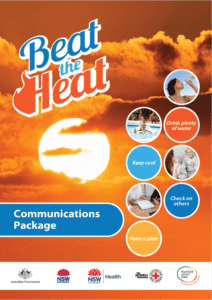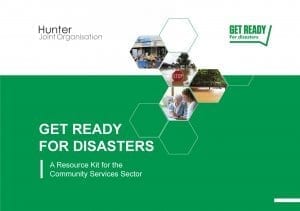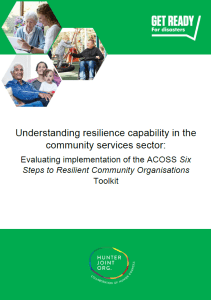Beat the Heat
Heatwaves kill more Australians than any other natural disasters, and the frequency and intensity of heatwaves in Australia is increasing. Our Beat the Heat resources have been refreshed for 2023 to raise awareness of the simple steps that can be taken to reduce the impact of heatwaves on our health.
The Package offers a suite of tailored communication resources, adapting existing messages into various formats to engage different “at risk” communities and address key issues and impacts. This includes medication impacts, rural and isolated communities, the elderly and people with a disability, and families with young children. This package has been developed based on the most current NSW Health Beat the Heat resources. They are provided in a format that makes it easier for councils to use when communicating to their communities.
Beat the Heat Posters, Flyers, and Planning Guide:
2020 Spatial Analysis and Mapping of Community Vulnerability to Natural Disasters in the Hunter, Central Coast and MidCoast regions
This report provides an overview of the process undertaken to develop a spatial data library for the purpose of identifying relative community vulnerability to natural hazards across the Central Coast, Cessnock, Dungog, Lake Macquarie, Maitland, MidCoast, Muswellbrook, Newcastle, Port Stephens, Singleton and Upper Hunter Local Government Areas (LGAs). The spatial data library facilitates the integrated collation and analysis of spatial information datasets (representing population, environmental and natural hazards) that are relevant to identifying the location and relative vulnerability of communities.
Datasets and a GIS User Guide are also available to Hunter, Central Coast and MidCoast Councils on request.
Disaster Communications Planning Framework and Toolkit


The Disaster Communications Planning Framework and Toolkit were developed to guide Councils through key communication resources and structures that assist with preparing to communicate in a disaster situation. This work was funded under the joint State and Commonwealth Natural Disaster Resilience Program.
Watch our Preparing to Communicate About Disasters video to hear from a range of communication and disaster response experts on the challenges and opportunities that arise when Councils are faced with natural disasters and the deluge of communication demands that come with them.
Get Ready for Disasters – A Resource Kit for the Community Services Sector

The Get Ready for Disasters Resource Kit is a handy compilation of existing resources and materials from RFS, SES, Fire and Rescue, NSW Health, Hunter JO and more that focus on preparing for, responding to and recovering from natural disasters and emergency events. This work was funded by the NSW Government through the Community Resilience Innovation Program.
2019 Understanding resilience capability in the community services sector: Evaluating implementation of the ACOSS Six Steps to Resilient Community Organisations Toolkit
The Australian Council of Social Services’ (ACOSS) Six Steps to Resilience toolkit was designed to support community service organisations undertake business continuity planning to ensure they can continue to deliver core services during emergencies. This report provides the outcomes of an evaluation process undertaken with nine community service organisations involved in applying the Six Steps to Resilience process over a 12-month period. It documents both the insights of these organisations on why it is important to become disaster ready and the barriers they encounter in doing so.
2014 Disaster Preparedness in ‘At Risk’ Groups
This report documents the outcomes of social research completed by the University of Newcastle within the Lake Macquarie, Wyong and Gosford Local Government Areas to identify:
- Risk perception regarding natural disasters within ‘at risk’ communities
- Level and nature of preparedness for natual disasters by ‘at risk’ communities
- Capacity of ‘at risk’ groups to respond and recover from natural disasters
- The primary means via which ‘at risk’ groups receive natural disaster warnings and barriers to communication within ‘at risk’ communities





